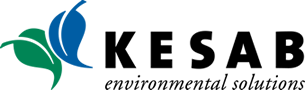Waste management is incredibly important when it comes to protecting and enhancing our natural environment in South Australia.
The state government has a strong focus on moving toward a circular economy and supporting our waste management industry as our state continues to lead the nation in waste diversion.
For over 50 years, KESAB environmental solutions has been working to connect community and build partnerships to help reduce litter and maintain South Australia’s clean and green credentials. KESAB is also a great advocate and practitioner of environmental sustainability education and action.
In 2017-18, KESAB engaged tens of thousands of students from preschool to high school to deliver on-the-ground programs such as Litter Less, Sustainable Communities (Tidy Towns) and Wipe Out Waste, and hundreds of teachers have gone through professional development and school sites programs.
Climate change, water, carbon reduction, biodiversity, waste diversion and resource recovery, and much more, are all embedded in KESAB programs which lead to tangible outcomes that make a difference in our community.
In part funded by Green Industries SA, these programs have delivered outstanding results in 2017-18. This includes a reduction in litter compared with the same time last year, global education partnerships with Mongolia, Kiribati and India, and a range of excursions and tours for schools and community.
In 2017-18 $20 million in value was gained from community voluntary effort. This includes volunteers for Road Watch, clean up events, KESAB education centres, and Statewide Recycling along with numerous other initiatives. These facilities attracted over 10,000 student visits between 2017 and 2018, and included international delegations from India and Japan.
At the heart of all this is community education and involvement in metropolitan and regional areas to enable our state to meet the changes and challenges of the future.
KESAB continues to be a significant contributor to environmental sustainability, education and community engagement in South Australia, and I look forward to more good programs and work for many years to come.

